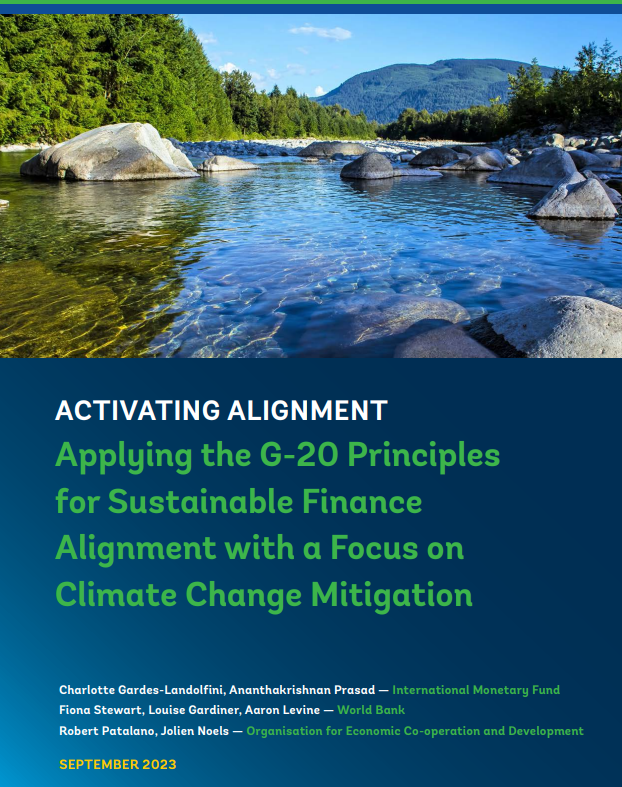Activar la alineación: Aplicación de los Principios del G-20 para la Alineación de las Finanzas Sostenibles con la Mitigación del Cambio Climático

Staff from the International Monetary Fund (IMF), World Bank, and the OECD have published a new report to compare methods for ensuring financial sector activities work for, not against, the Paris Agreement. The report, which also received input from BIS staff, aims to help policymakers, regulators and private sector entities improve sustainable finance ‘alignment approaches’, by identifying core design and implementation elements that could provide a minimum baseline of comparability across approaches.
Scaling up private finance to support the transition to net zero means providing investors with the means to identify low-carbon and transitional investments and assess the impact of low-carbon investment strategies to reduce greenhouse gas emissions discharged in the real economy.
These frameworks use various tools (such as taxonomies, scoring methodologies, disclosure, and transition-planning frameworks) and share common features: science-based transparency, benchmarking for capital allocation purposes, transition planning and investment decision-making, and anti-greenwashing functions.
Yet, many countries – especially emerging and developing economies – do not have robust frameworks in place, and some also lack the data and indicators that would underpin it. Where frameworks and data do exist, they are rarely interoperable, making it hard for investors to compare climate-related risks and financing needs and opportunities across markets.